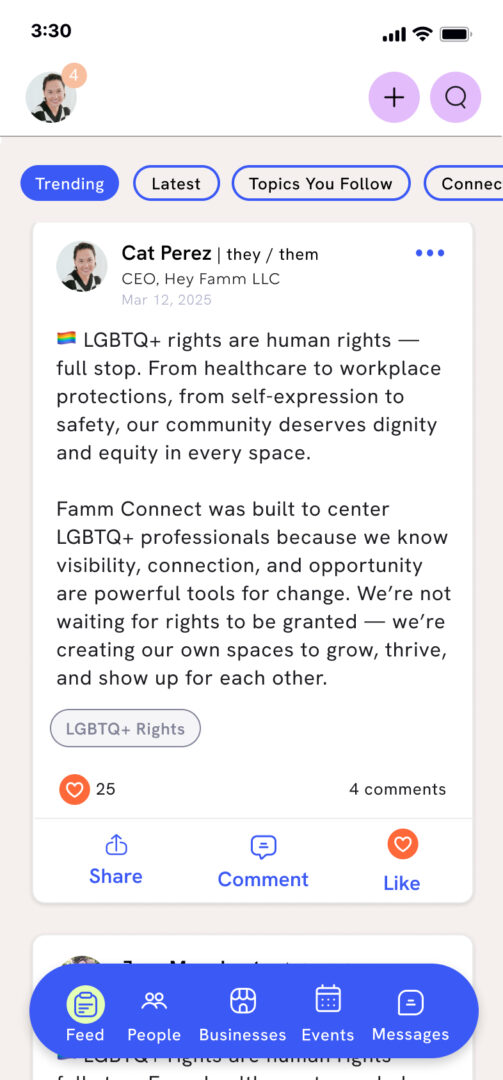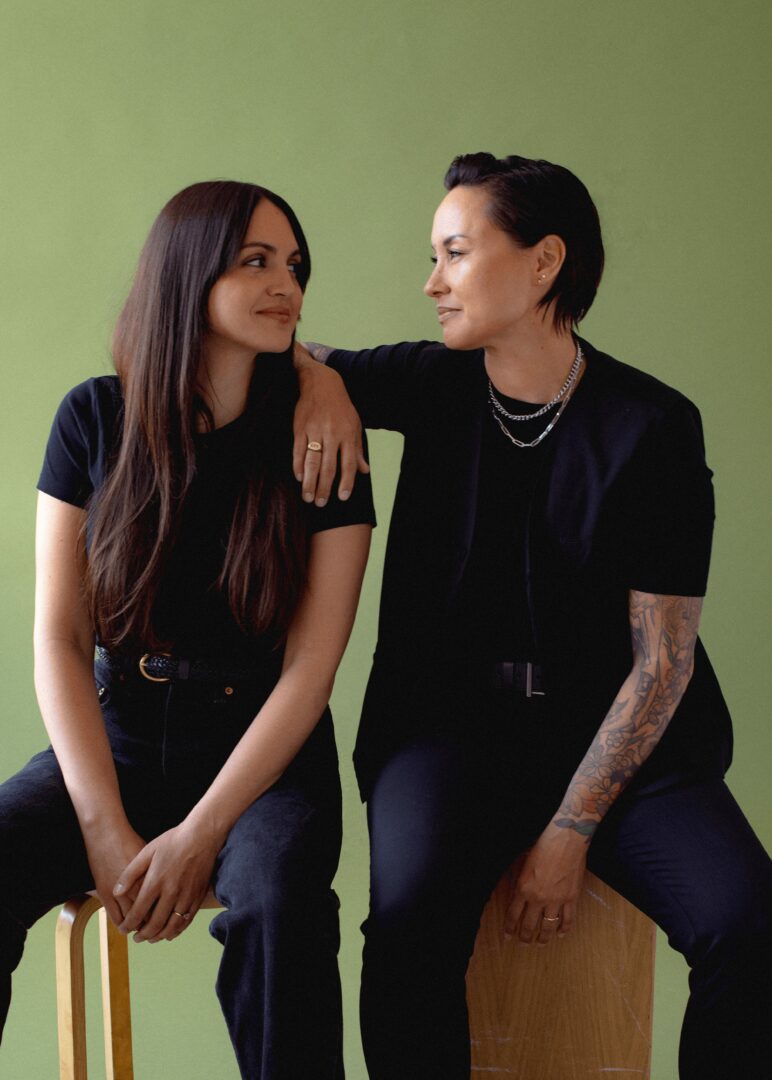Alright – so today we’ve got the honor of introducing you to Cat Perez. We think you’ll enjoy our conversation, we’ve shared it below.
Cat, thank you so much for joining us today. Let’s jump right into something we’re really interested in hearing about from you – being the only one in the room. So many of us find ourselves as the only woman in the room, the only immigrant or the only artist in the room, etc. Can you talk to us about how you have learned to be effective and successful in situations where you are the only one in the room like you?
Being the only one in the room who looks like me has taught me to be strategic about how I show up. I’ve learned to read the room, understanding not just what people are saying but how they think and operate. For example, in data-driven spaces, I’ve leaned into using data to back up my perspectives. Speaking the language that others value, whether it’s metrics, outcomes, or strategy, has helped me get ideas across in a way that resonates.
I’ve also found that understanding people’s motives and what they’re trying to achieve allows me to build stronger relationships. It creates momentum and trust when I can align my work or ideas with what someone else is trying to accomplish, which helps the company or business even more. That trust then creates room for more influence and collaboration.
But I also think it’s not enough to “earn” credibility in these rooms. I see it as a responsibility to bring more representation and lived experience to the table. When I’ve been in positions of power, I’ve used that leverage to bring others in, especially folks who are highly qualified but often overlooked because they don’t have traditional credentials or don’t look like every other tech bro out there. Diverse teams lead to better outcomes, but they also shift culture. And I’ve seen firsthand how opening the door for others invites more open dialogue, more creativity, and ultimately, better decisions.
Thanks, so before we move on maybe you can share a bit more about yourself?
I’m one of the co-founders of HeyFamm.com and Famm Connect. My wife, Marianna, is the other co-founder. At its core, Famm is a growing ecosystem created to support and uplift LGBTQ+ entrepreneurs, professionals, and business owners. We started HeyFamm.com because we realized how hard it was to find LGBTQ+ e-commerce brands and virtual service providers all in one place, especially outside of Pride Month.
We wanted to build something that makes it easy and ongoing to discover and support queer-owned businesses across various industries. We didn’t just want a directory, we wanted to know the stories behind these entrepreneurs as well. After talking to hundreds of founders, we very quickly learned they wanted a way to connect with one another in a way that was easy, free, accessible, asynchronous, industry-agnostic, and safe!
That led us to build Famm Connect, a social network built just for LGBTQ+ professionals and business owners. It’s a space to connect, collaborate, and build community, whether that’s through finding clients, mentors, jobs, partnerships, or simply sharing your wins. What makes it special is that it’s rooted in trust, intention, and shared identity. We’ve heard from countless community members how the space is incredibly wholesome and lacks the elitist vibes that come from other social networks.
We’re really excited right now because we’re expanding what Famm Connect can offer. We are getting ready to launch Premium Business subscriptions on the app as well as working on the web version to make it more accessible to the community. This will truly help continue to build up the queer economic ecosystem we aim to empower.
At the end of the day, this work is deeply personal. We’re building the platform we wish existed, something grounded in community, designed by and for us. And we’re just getting started.
There is so much advice out there about all the different skills and qualities folks need to develop in order to succeed in today’s highly competitive environment and often it can feel overwhelming. So, if we had to break it down to just the three that matter most, which three skills or qualities would you focus on?
Looking back, the three most impactful things in my journey have been resilience, a willingness to take risks, and the slow but steady development of an entrepreneurial mindset.
Resilience, first and foremost. I’ve been told I’m not good enough, I don’t belong, I’m different, I’m not smart enough, you name it. And sure, those moments hurt, but they also lit a fire in me. That fire has fueled me through setbacks, rejections, and uncomfortable situations. I’ve learned to use that as energy, take risks, swing for the fences, and keep moving forward even when the path wasn’t clear.
Being a risk taker didn’t come naturally, but a near-death experience in my early twenties shifted everything for me. As cliché as it sounds, it forced me to ask, What am I doing with my life? That moment pushed me to come out, to leave New Jersey and fly across the country to San Francisco, and to take professional risks, joining hackathons, building things outside of my 9-5, chasing ideas I never would’ve had the confidence to pursue before.
Entrepreneurship is something I’ve grown into over time. Even before I knew the word for it, I had this gut feeling that I wanted to build something bigger than me, something that could have a real impact on people’s lives. Through my startup experiences, both my own and others, I’ve learned the importance of adaptability, focus, empathy, resourcefulness and checking your ego at the door. You have to be willing to wear all the hats, do what it takes, and keep learning as you go.
My advice? Start by being honest with yourself about your mental, physical, and financial capacity because not everyone has the same access or privilege, and that matters. But if you do have some room to move, keep going, even when it’s hard. There are a lot of free resources out there, so take advantage of what you can. And don’t underestimate the power of community. Talk to people. Go to that event, even if you’re dreading it. I’m not a fan of traditional networking, but I’ve had one honest conversation at a conference turn into a deep, lasting connection, and that’s worth more to me than 20 surface-level chats.
Also, take some risks—whatever that looks like for you. You’re not going to make any of the shots you don’t take. And risk doesn’t have to mean quitting your job or going all in overnight. It could be speaking up in a meeting, launching a small side project, or emailing someone you admire. Find the version of risk that fits your life and values, and let that be your entry point.
Okay, so before we go we always love to ask if you are looking for folks to partner or collaborate with?
Absolutely! We’re always looking to collaborate with LGBTQ+ organizations, groups, communities, influencers, and businesses who believe in what we’re building. Famm Connect is a free social network app created by and for the LGBTQ+ professional and business community. We launched in December 2024, and today, thousands of queer folks are using it to connect, support one another, hire each other, and buy from one another.
We believe our community deserves a space that centers our safety, our visibility, and our success—and that’s exactly what Famm Connect is. If that mission resonates with you and you want to collaborate, partner, or get in touch, we’d love to hear from you. You can reach us at [email protected] or visit HeyFamm.com to learn more about us!
Contact Info:
- Website: heyfamm.com/famm-connect
- Instagram: https://www.instagram.com/hey_famm/
- Linkedin: https://www.linkedin.com/company/heyfamm
- Other: https://www.tiktok.com/@hey_famm

Image Credits
Cameron Falco




